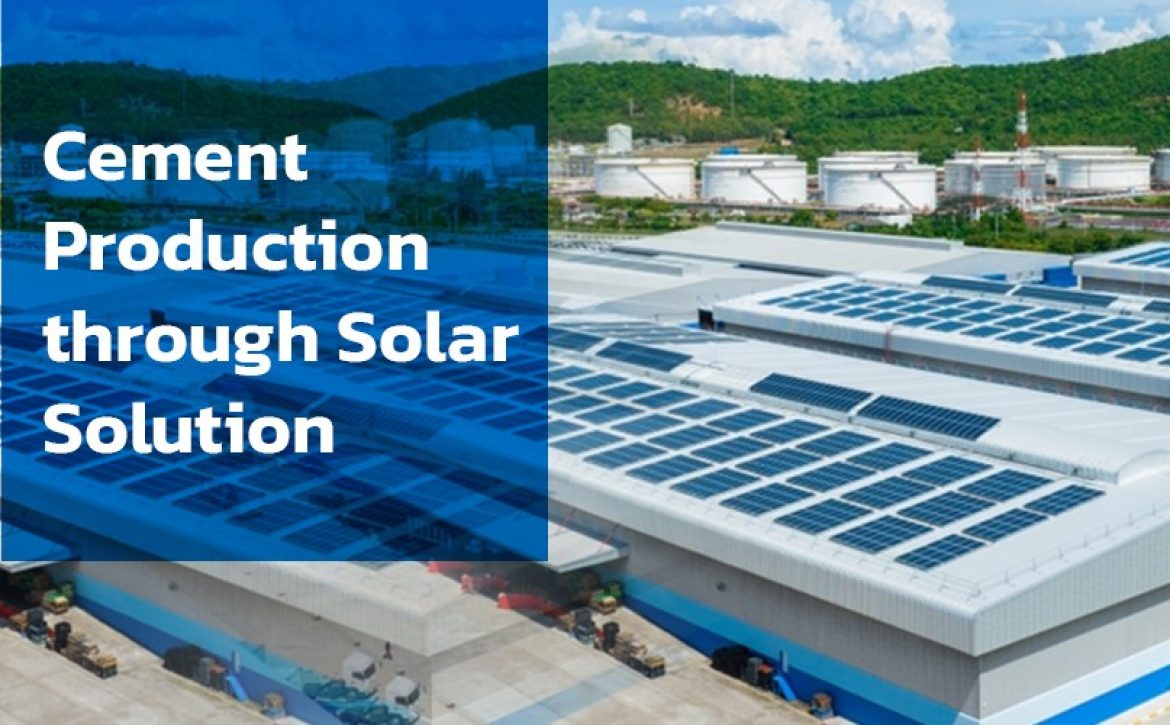Cement Production through Sustainable Solar Solution
In recent times, Solar Energy has undoubtedly emerged as a powerful and eco-friendly source of electricity making it suitable for various industrial applications. The cement production sector, known for its high energy demands from carbon-emitting sources, stands as an ideal sector for groundbreaking solar solutions to create a significant transformative impact. One such groundbreaking solar solution, the On-Grid Solar System emerges as a sustainable and adaptable solution that is propelling the cement production energy towards a more sustainable future. It can meet the power demands of the cement manufacturing plant by tapping into the abundant and clean resource of solar energy, ultimately leading to reduced energy costs. This not only promotes sustainable manufacturing practices but also enhances cost-effectiveness.
On-Grid Solar System and the Cement Manufacturing Industry
Cement manufacturing indeed requires a significant amount of energy, which comes from carbon-emitting sources. However, by integrating on-grid solar system, the cement manufacturing process can be supported with clean and renewable energy. The on-grid solar system is designed to provide solar energy to cement manufacturing plants seamlessly. The process begins with the installation of solar panels, which capture sunlight and convert it into electricity. The energy generated is then fed into the plant’s electrical grid. This solar-generated electricity effectively powers various operations within the cement manufacturing process, reducing the plant’s reliance on conventional energy sources and lowering its electricity costs. This transition to solar energy not only makes cement production more sustainable but also contributes to reduced operational expenses, ultimately benefitting the environment and making the entire process cost-efficient. The environmental benefits of solar power are profound. Unlike conventional energy sources that rely on fossil fuels, solar energy is clean, renewable, and emission-free. When integrated into the energy supply for cement plants, solar power significantly minimizes the use of fossil fuels, which are finite resources and major contributors to greenhouse gas emissions and by reducing reliance on carbon-emitting energy sources, solar power contributes to a cleaner and healthier environment. This transition to cleaner energy not only mitigates climate change but also enhances air quality, thereby creating a more sustainable and environmentally conscious future.
Essential Standards and Compliances
Servotech places paramount importance on adhering to industry standards and regulatory compliance throughout the manufacturing and installation of our solar systems. During the manufacturing process, rigorous quality checks are conducted to ensure the efficiency, durability, and optimal functioning of our products. When it comes to the installation of solar systems, we take meticulous care to ensure proper mounting and positioning, maximizing their exposure to sunlight. Our manufacturing and installation procedures strictly adhere to the standards established by reputable organizations, including the National Electric Code, IEEE, BIS, ISO, and IEC. Furthermore, our solar products are MNRE-approved. By complying with these standards, we ensure robust, sustainable, and safe solar power installations.
Major challenges faced in the supply of renewable energy
The supply of renewable energy faces several significant challenges. Finding a suitable location to facilitate installation is one of the major problems. Every area be it urban or rural comes with its own set of challenges, in this case, finding a location that supports smooth installation can get a little tricky. Intermittency is a primary concern, as sources like wind and solar are weather-dependent, requiring energy storage solutions to ensure consistent availability. Infrastructural limitations of the grid hinder the efficient distribution of renewable energy from remote locations to urban areas. Additionally, the high upfront costs of renewable technologies can deter investment. Regulatory and policy uncertainties also impact growth. Finally, environmental concerns, such as land use and wildlife disruption, need careful consideration. Addressing these challenges requires advancements in energy storage, grid modernization, supportive policies, and innovative solutions to ensure a reliable and sustainable renewable energy supply and Servotech is actively working towards surmounting these barriers, paving the way for a sustainable future powered by solar energy.
Conclusion
The integration of solar energy into cement production marks a pivotal step toward sustainability in a conventionally energy-intensive industry and the journey towards a greener, more sustainable future through solar innovation promises a cleaner and healthier environment for generations to come.

